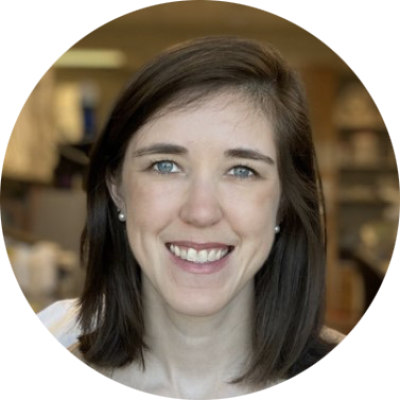
Caitlin J. Bowen
In Hal Dietz’s laboratory, I focused my doctoral research on vascular Ehlers-Danlos syndrome [vEDS] — a rare genetic disorder due to collagen type III mutations that leads to spontaneous vascular rupture and dissection. It is widely believed that the often fatal vascular rupture occurs because of weak tissue in the vessel wall, due to reduced amounts of collagen. However, by uncovering genetic and environmental modifiers of disease, we discovered that signaling abnormalities in the endothelin signaling pathway [ET1/PLC/PKC/ERK] drive vascular rupture risk. Pharmacologic agents that inhibit this pathway prevent death from vascular rupture. These discoveries illustrate the power of complementary discovery-based methods to elucidate the molecular basis of disease, reveal novel understandings of vascular biology and discover new therapies for catastrophic vascular disease. Based on these results, the first clinical trial for patients with vEDS was initiated in 2021 using a novel PKCβ inhibitor, enzastaurin.
Questions & Answers
Why did you choose Johns Hopkins for your work? I chose Johns Hopkins because of their dedication to physician-scientist training. I was drawn to the institution because of their incredible clinical and research prowess. I also was drawn to the collegiality, curiosity and kindness offered by current students and staff. What does receiving this award mean to you personally and professionally? Do you have any connection with the particular award you received? I have been inspired by many previous students who have won Young Investigators’ Day awards. It is such an honor to be awarded among the other successful and talented young investigators. What contributed to your project’s success? (Special skills, interests, opportunities, guidance, etc.) My research was motivated by my thesis adviser, Dr. Hal Dietz, as well as patients with vascular Ehlers-Danlos syndrome. I have had the pleasure and privilege to work closely with people with vEDS, both in the lab and at meetings around the world. They taught me about their disease, guiding my research questions, and I shared with them our advances in the laboratory. Dr. Dietz also taught us to design experiments that considered both scientific data and clinical questions, so many of our discoveries were translated directly to patient care. Dr. Dietz also taught me how to appreciate paradoxes in scientific data and to be excited when hypotheses were proved wrong, because that meant there was something to be learned. What thoughts do you have about Young Investigators’ Day itself, as a celebration of the roles students and fellows play in research at Hopkins? I look forward to Young Investigators’ Day each year and the students’ and fellows’ research accomplishments. Research can be quite challenging, and it is important to celebrate the quality and significance of the work conducted by trainees. I have been inspired by many previous students who have won Young Investigators’ Day awards. What has been your best/most memorable experience while at Hopkins? One of my best experiences at Hopkins was attending a joint research meeting and patient conference for those with vascular Ehlers-Danlos syndrome. Studying a human disease and sharing your research findings directly with patients and their families provides immeasurable insight and perspective, and helps drive innovative basic and translational science questions. I have felt incredibly lucky to be able to train as an M.D.-Ph.D. at Hopkins, where every day I get to go to work and do something I love while helping contribute to expanding the boundaries of science and medicine. What are your plans over the next year or so? Graduating, looking for faculty positions, etc.? I am excited to continue my training as a pediatric resident at the Boston Children’s Hospital and Boston Medical Center as part of the Boston Combined Residency Program. Pediatrics training will allow me to learn how to care for children with complicated conditions, ascertain clinically relevant research questions, and provide the foundation to translate my findings into new and effective therapies for children. I am committed to translational research and aspire to have seamless continuity between my clinic and basic science laboratory. I am specifically interested in becoming a pediatric physician-scientist who sees children with genetic cardiovascular conditions. Tell me something interesting about yourself that makes you unique. Do you have any special hobbies, interests or life experiences? In my free time, I like reading science fiction, watching British murder mysteries and quilting. I’ve made 23 quilts during my time at Hopkins and I also sewed with B-more Bags, a social enterprise that raises money for House of Ruth Maryland. On weekends, I am either backpacking in a national park or cycling the Baltimore & Annapolis Trail. At home, I hang out with my two rescued cats, Sage and Clover.